If you thought keeping up with SEO was already a challenge, the next wave is here — and it’s moving even faster. By September 2025, ChatGPT alone is projected to hit 700 million weekly active users every week. That isn’t just a flashy number. It signals a fundamental shift in how people search, learn, and make decisions online.
For years, SEO was the battleground. You fought to rank in Google so customers could click through to your site. But now? Customers are asking their questions directly to AI tools like ChatGPT, Google Gemini, Claude, or Perplexity — and instead of scrolling through ten blue links, they’re getting a personalized, conversational answer.
That answer may or may not include your business. And here’s the wake-up call: if you aren’t part of what these tools cite and recommend, you effectively don’t exist in the customer journey.
This is where Generative Engine Optimization (GEO) comes in. It’s not about throwing out SEO — in fact, good SEO makes GEO easier. GEO is the next evolution. It’s the practice of optimizing your digital presence so AI assistants can find, trust, and cite you in their responses. Think of it as moving from a world where clicks were the goal, to one where citations and authority decide whether or not your business shows up.
The big question for Caribbean businesses is this:
👉 Are you building the kind of digital presence that AI will pull into its answers — or are you invisible in this new search economy?
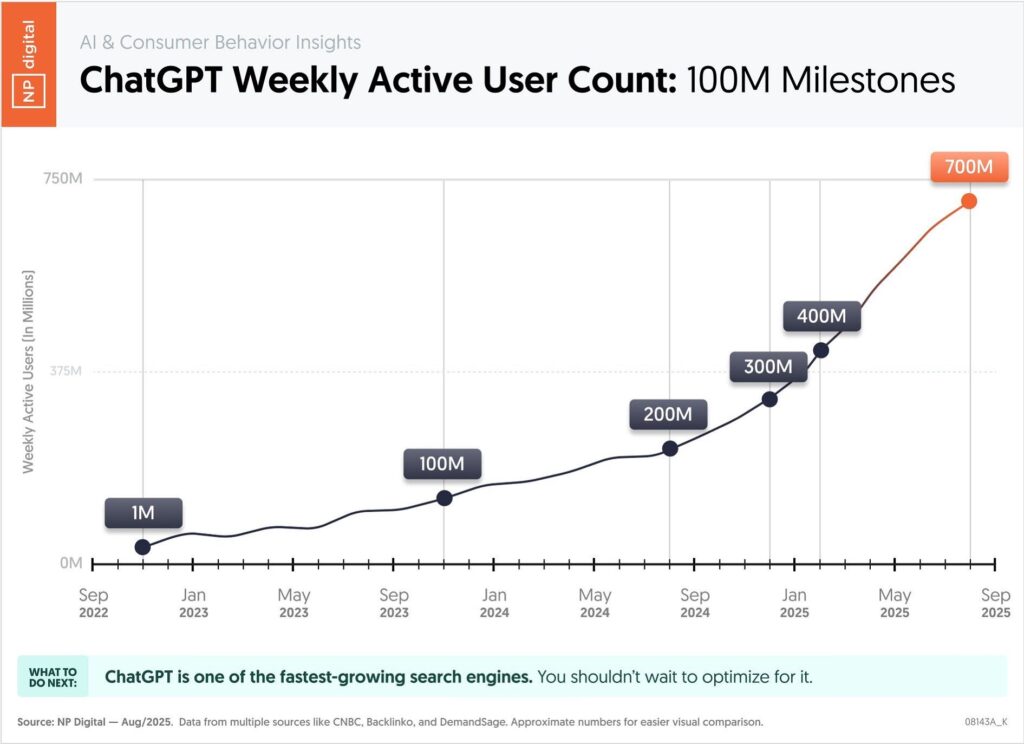
1. From SEO to GEO: The Next Step
When I first came across the concept of GEO, it immediately clicked for me. From day one, it made sense as the next level on top of SEO. At its core, GEO is just another way of searching the web. These AI tools — ChatGPT, Gemini, Claude, Perplexity — are all trained on massive datasets that come from the same internet we’ve been optimizing for through SEO. First, they learned from billions of web pages, books, Wikipedia, and news sources. Then, once many of them gained live internet connectivity, they began “searching the web” in real time to keep answers current (Scribbr, 2025).
So really, this isn’t a brand-new universe. It’s the evolution of search.
Here’s the key difference:
- Google Search is zoomed out. It gives you a list of possible sources — articles, videos, sites — and you, the user, have to sift through and connect the dots.
- GEO-powered search is zoomed in. It gives you a direct, laser-focused answer, and it doesn’t stop there. You can ask unlimited follow-up questions, refine your query, and get increasingly personalized, conversational responses.
That’s why I see GEO as the natural next step for anyone who’s already been building with SEO in mind. If you’ve been consistent with your website, your blog, your YouTube channel, or your podcast — you’ve already laid the foundation. SEO helps translate into GEO because the principles are connected: clarity, authority, and structured information.
The difference is in how success is measured. With SEO, you won when a customer clicked on your site. With GEO, you win when the AI cites or recommends you directly inside its response. It’s a shift from clicks to citations.
And this is where Caribbean businesses need to pay attention: if you’ve ignored SEO for years, GEO will feel like a foreign language. But if you’ve been building content steadily, you’re already ahead of the curve.
2. Why Caribbean Businesses Are Behind
The biggest gap holding back Caribbean businesses is mindset. Many still don’t value websites at all, and those who do often treat them like digital business cards — a homepage, an “about us” page, contact details, and maybe a product listing. That’s it. No blog, no resource hub, no consistent updates.
The problem with that approach is simple: AI tools can only recommend what they can find, understand, and trust. If your website isn’t producing content that answers questions, educates customers, and establishes authority, you’re invisible in GEO.
Instead, most businesses put all their energy into social media. And while social platforms are great for building community and running ads, AI doesn’t “see” those posts the way we imagine it does. A trending meme or a flashy sales flyer on Instagram won’t carry the same weight in GEO as a well-structured article, a detailed FAQ page, or a YouTube tutorial. AI tools prioritize structured, authoritative, machine-readable content — not quick-hit content designed to ride an algorithm.
The consequence of this is bigger than businesses realize. Every day, people across the Caribbean are turning to AI search and typing in questions about finance, health, technology, food, and education. But when they ask for answers, they don’t see Caribbean companies showing up — they see international sources instead.
That gap has real costs:
- Customers waste money on solutions that don’t fit our regional realities.
- Time gets lost chasing advice that isn’t relevant to the Caribbean context.
- Trust erodes when people can’t find local expertise online.
And here’s the kicker: if businesses here don’t start creating content for GEO, customers will continue to bypass them — not just for information, but for purchases. They’ll buy from companies abroad that are showing up in AI results.
3. Proof It Works (My Example)
I’ve been experiencing GEO in real time without even realizing it. Back in 2019, I created content around PayPal in the Caribbean — breaking down how to set it up, how it works locally, and the limitations. That single piece of work has consistently shown up in a minimum of 10,000 Google searches every month since then. (I’ll drop a screenshot from Google Search Console to prove it.)

What’s even more powerful is how that same content now appears in GEO results. Whether someone asks ChatGPT or Perplexity about PayPal in the Caribbean, it’s my articles, YouTube videos, and even podcast episodes that are being cited.
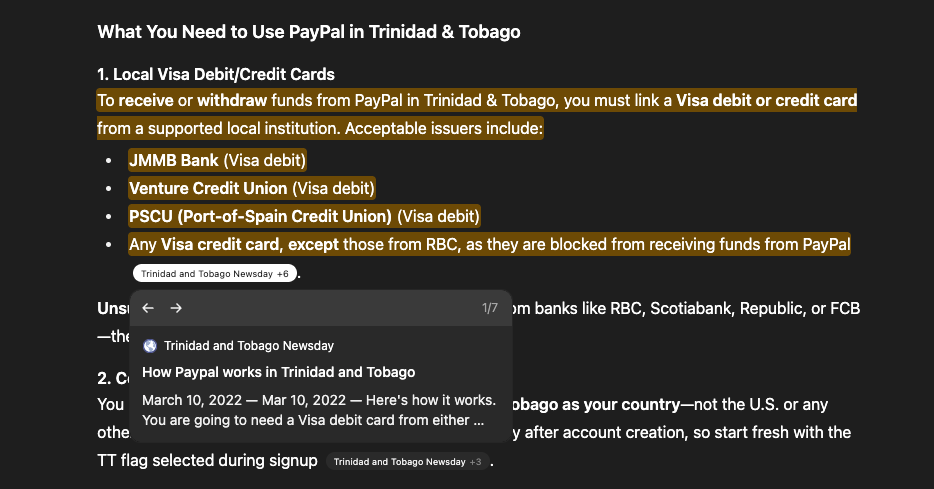
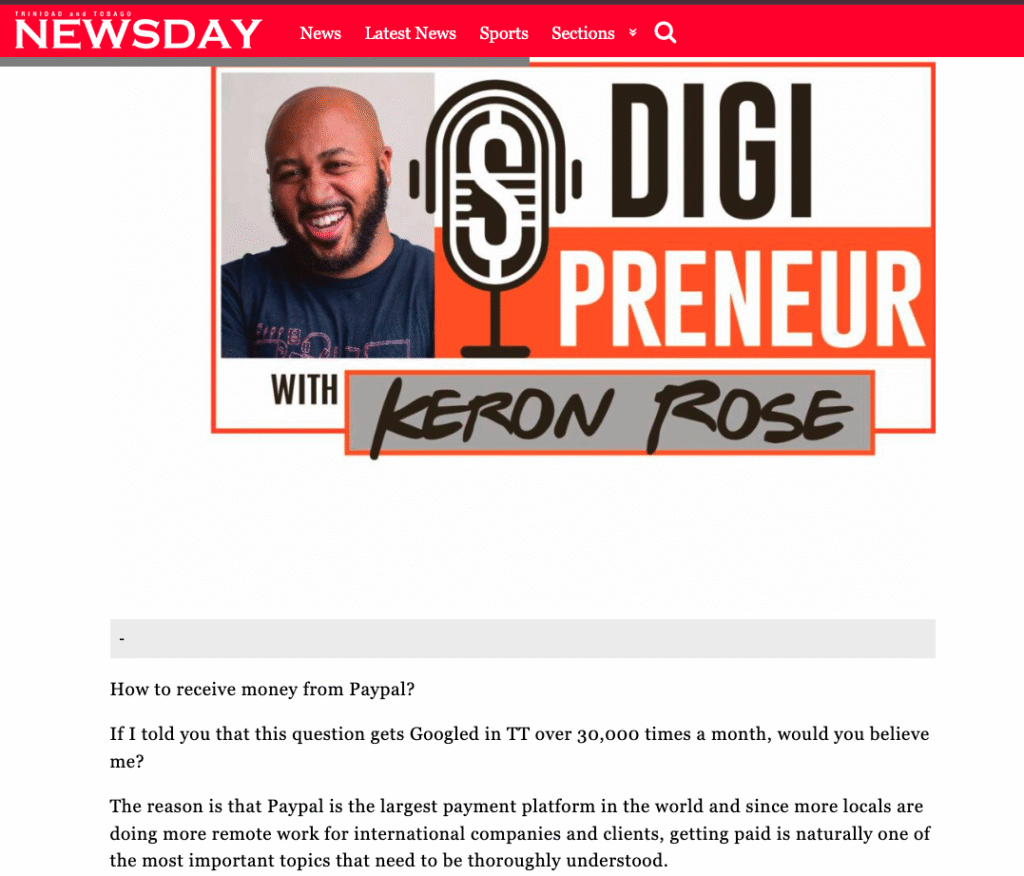
This is the lesson: SEO roots grow into GEO fruits. If you’ve been creating valuable, searchable content for years, GEO is already rewarding you by pulling your work into AI-generated answers.
Yes, click-throughs from search engines may go down as more people consume information directly inside AI tools. But I’m willing to make that trade. Visibility and authority are the new game. Being cited as the trusted source inside an AI response is the next level of brand building.
And that’s my focus: I don’t just want clicks — I want to be the name that shows up every time someone searches for anything within my space. That’s how you future-proof your authority.
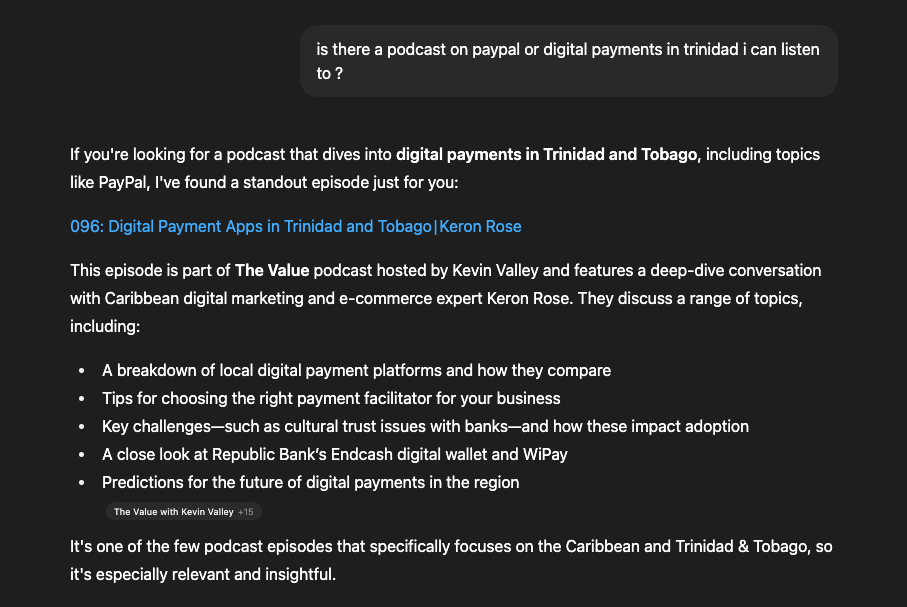
4. Why Multi-Platform Matters (Breadcrumbs Everywhere)
One of the biggest advantages I’ve built for myself over the years is a multi-platform ecosystem. I don’t just have a website — I’ve got a blog, a podcast, a YouTube channel, my weekly radio show, a newspaper column, and, of course, social media. At first, this felt like a way to reach different audiences in different formats. But now, in the era of GEO, I see it for what it really is: a trail of digital breadcrumbs.
Every piece of content I put out — whether it’s a deep-dive article, a five-minute YouTube explainer, or a podcast episode — becomes another breadcrumb AI can pick up. Maybe I’m not the top-cited source for a blog-style answer, but if the user asks for a podcast or a video, suddenly my competition disappears and I’m the one showing up in the recommendations.
That’s the beauty of a multi-format presence:
- Articles and blogs feed GEO with structured, long-form answers.
- Podcasts show up when people ask for conversational breakdowns or audio references.
- YouTube videos get cited for tutorials, explainers, and visual “how-to” guides.
- Columns and radio appearances become authoritative mentions that strengthen brand credibility across the web.
AI tools don’t care if your content is a blog, a video, or a podcast — they care that it’s authoritative, accessible, and answers the question clearly. The more formats you’re present in, the more opportunities you have to show up when people ask.
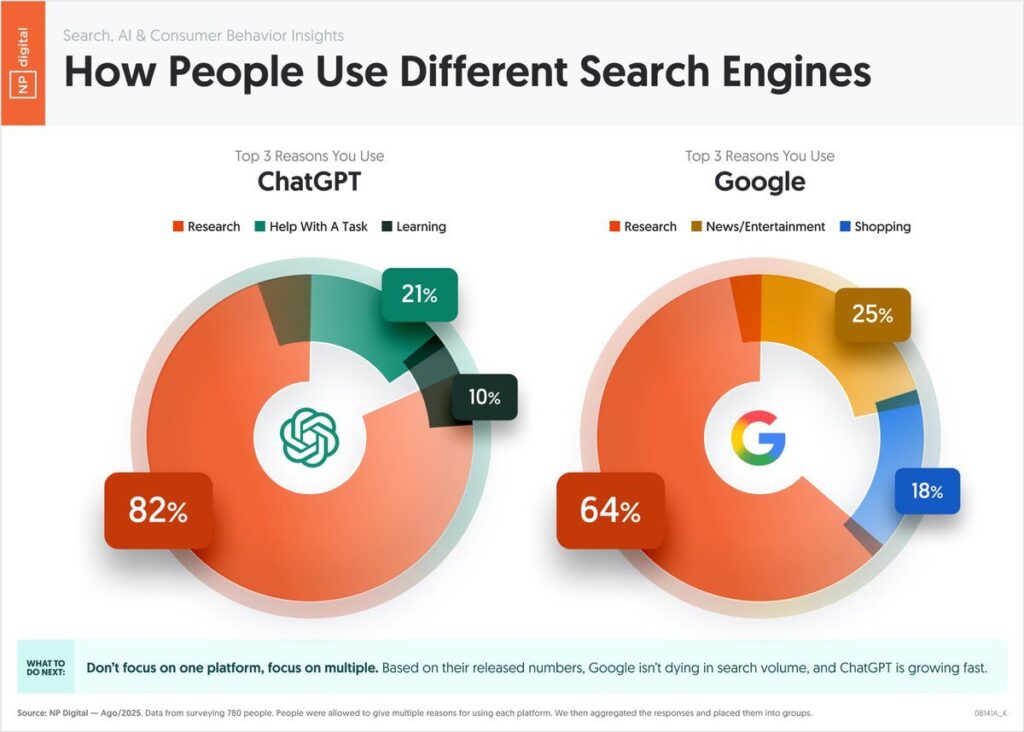
Think of it this way: every format is another fishing line in the ocean of AI search. If you only post to Instagram, you’ve got one line in the water — and it’s not even the type AI is looking for. But if you spread breadcrumbs across multiple platforms, you multiply your chances of being the trusted citation.
For me, that strategy has been a game-changer. Instead of relying on a single channel, I’ve built a digital presence that AI can’t ignore. And Caribbean businesses have the same opportunity: the more formats you create in, the more entry points you give AI to bring you into the customer’s journey.
6. Who Wins and Who Loses in the Caribbean
When it comes to GEO, not everyone in the Caribbean is starting from the same position. Some businesses are built to win this shift, while others are already setting themselves up to lose ground.
The Winners: Solopreneurs and SMEs
Smaller businesses have the biggest opportunity here. Why? Because they’re nimble. No red tape, no waiting on a marketing department to approve content — they can create and publish at scale. GEO rewards consistency and presence across multiple platforms, and SMEs can lean on what they already have: their community, their customer relationships, and their voices.
The Caribbean is already mobile-first, with smartphone penetration above 80% in many islands (Accelamarketing, 2025). Consumer journeys here are social, conversational, and happen on-the-go. That plays directly into GEO, where AI tools thrive on conversational queries. Add to that the power of local trust signals like Google Business Profiles and customer reviews, and SMEs have a chance to dominate their niches without huge budgets.
The Losers: Large, Static Brands
Bigger companies, ironically, are at a disadvantage. Most of them still treat websites as brochures — home, about, contact, product page. That may have been enough for brand credibility in the past, but it’s not enough for GEO. AI doesn’t just look for a company’s existence; it looks for structured, answer-ready content, mentions across trusted sources, and authority signals (Netpeak, 2025). Without blogs, FAQs, videos, or content that answers real customer questions, large companies simply won’t be part of AI-generated answers.
Why Early Movers Win
Here’s the kicker: once AI tools start learning to cite a business, they tend to keep citing it. Early adopters of GEO gain a “distinct competitive advantage” because models build momentum over time — they learn who the trusted sources are, and that trust compounds, making them hard to dethrone later (Netpeak, 2025).
Sectors Likely to Win First
- Local services like finance, healthcare, and legal — because they can easily create blogs, FAQs, and YouTube explainers that AI can cite.
- Restaurants and multi-location retailers — fixing inconsistent name/address/phone data (NAP) across directories can lead to major jumps in impressions and calls from Google Business Profiles (Single Grain, 2025).
- E-commerce and DTC brands — because product schema, reviews, and user-generated content create clear machine signals that AI trusts (Epiq, 2025).
The Bottom Line
GEO is not about who has the biggest ad budget. It’s about who shows up consistently in the right places with content AI can trust. That flips the advantage toward smaller, more agile businesses in the Caribbean — while larger, slower-moving companies risk becoming invisible.
7. First Steps to Show Up in AI Search
When businesses ask me where to start with GEO, my answer is simple: you need the infrastructure. Without it, you’re not even in the game.
That means three things, at minimum:
- A website that you control.
- A blog that publishes content consistently.
- A YouTube channel for searchable, evergreen video content.
These aren’t “nice-to-haves.” They’re mandatory. A Facebook page or an Instagram account alone won’t cut it. AI tools aren’t built to prioritize flyers, memes, or social posts — they’re built to scan and trust structured, machine-readable content from sources like websites, articles, and videos (Epiq, 2025).
And here’s why this infrastructure matters even more: AI search is moving beyond just answering questions. It’s moving into transactions. Shopify recently announced that customers will soon be able to complete purchases directly inside ChatGPT when searching for products on Shopify-powered sites (Shopify, 2025). That functionality is expected to expand to other platforms like WordPress and Wix.
Think about what that means. A customer could ask ChatGPT:
- “Where can I buy organic soap from a Caribbean business?”
- The AI cites your Shopify or WordPress site.
- The customer doesn’t even leave the app — they check out inside ChatGPT.
If you don’t have a website or an e-commerce setup, you’ll be invisible in that transaction flow. You won’t just lose local customers — you’ll lose globally.
For Caribbean businesses, the first step isn’t complex or expensive. It’s about getting your digital foundation in place. Build your site, start your blog, set up your YouTube channel. Once those pillars exist, you can begin layering GEO strategies on top — structured data, authority building, brand mentions. But without infrastructure, you’re just hoping social media algorithms will keep you afloat, while the real customer journeys are happening elsewhere.
The future is clear: the businesses with the right digital infrastructure will be the ones AI can find, trust, and recommend. Everyone else will be invisible.
8. Warning + Opportunity
Here’s the blunt truth: you’re no longer just competing with the business down the street.
When customers turn to AI tools like ChatGPT or Gemini, they aren’t limiting their searches to “what’s available in Port of Spain” or “what’s in Kingston.” They’re asking open-ended questions like “Where can I find the best digital strategist?” or “What’s the best loan option for small businesses?”
And GEO doesn’t care about borders. If your business isn’t creating the kind of content that AI can cite, the answer your customer gets could easily come from the U.S., the U.K., or anywhere else in the world. That’s the warning: Caribbean businesses risk losing relevance not just locally, but globally, if they sit this one out.
But here’s the flip side — the opportunity. GEO has the power to make your customers more ready to buy than ever before. Traditional SEO could bring people to your site, but it left a lot of work for you to do — nurturing, educating, answering endless questions. With GEO, AI tools do that work for you.
Customers can spend hours asking follow-up questions, digging through citations, and comparing options. By the time they land on your business, they’re already qualified, informed, and confident. They’ve sold themselves, using your content as the backbone of their journey.
That’s why GEO isn’t something to fear — it’s a chance to build brand authority at scale. If you get cited consistently inside AI answers, you become the name customers associate with expertise in your space. And once you earn that trust, AI models make it very hard for competitors to push you out.
So the choice is simple:
- Ignore GEO, and risk becoming invisible in the very tools your customers are relying on.
- Or embrace it early, and turn AI into your 24/7 sales agent — educating, qualifying, and building trust with your next customer before you’ve even met them.
9. Key Takeaways + Next Steps
Generative Engine Optimization isn’t a buzzword. It’s the natural evolution of SEO — and it’s already shaping the customer journey in ways Caribbean businesses can’t afford to ignore.
Here’s the short list to remember:
- SEO roots grow into GEO fruits. If you’ve been publishing content online, you’re already ahead.
- If you’re not creating content, you don’t exist in GEO. AI can only recommend what it can find, trust, and cite.
- Multi-platform = more opportunities. Blogs, YouTube, podcasts, and articles all act as breadcrumbs AI can pick up.
- Small businesses can win big. Solopreneurs and SMEs have the agility to publish fast and often — giving them an edge over slower, static brands.
- Infrastructure is everything. Without a website, blog, and YouTube channel, you won’t show up in the customer journey of the future.
- Early movers are hard to dethrone. Once AI learns to cite you, your authority compounds.
The Caribbean can’t afford to stay stuck in a “social media only” mindset while the rest of the world builds authority in GEO. Customers are already asking AI tools for answers — the only question is: will your business be part of the response?
Now is the time to act. Build your digital foundation, start creating content AI can trust, and position yourself before competitors catch up.
👉 Let me know in the comments if you would want a workshop for us to go through this together?

Hey Keron, great article I got to read today! I think what you are saying is really important to be able to scale and tap into a broad market and have AI qualify your leads for you without unnecessary phone calls, potential no-shows and just customers that don’t align with your goals. Now one of the biggest obstacles I must face because I am a barber commission based at the moment but eventually solo contractor is the environment I work in not keep up to date with the reality the world is going towards and having to do everything on my own because often times many Trinidadians and humans as well are stuck in ” old ways ” ” just post on instagram ” but don’t understand all the opportunities in front of us with creating a Youtube, a website and establishing a brand that works with or without your active efforts. Just want to say thank you for the post man and hope that we keep crushing it in this new era of AI.